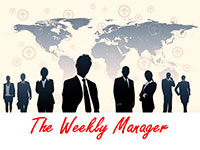
Music is arguably one of humanity’s greatest creations. It can provoke powerful emotions, from stirring us into action to soothing a troubled soul. A simple tune can inspire, challenge, unite us, help us focus and invoke a positive state. Music has served as a trusted companion to some of the most complex scientific theories. Einstein credits many of his pioneering ideas to the inspiration derived from listening to Mozart. When asked about his thought process by one interviewer, he attributed images and musical structure, rather than formulas and words, to his breakthroughs: “If I was not a physicist, I would probably be a musician. I often think in music. I live my daydreams in music. I see my life in terms of music.”
For countless professionals in a variety of fields, music has been a catalyst for bold ideas and bodacious achievements. And yet, until recently much of the corporate world has disregarded, dismissed or discouraged the role of music as a critical driver of a more effective organization. Still in many companies, the presence of music, even the use of headphones, is either frowned upon or even banned by corporate policy. This contradicts the overwhelming evidence showing music to be a potent tool for morale, team building, creativity, and productivity.
Background music has been employed in the workplace for centuries. In the Industrial Age women and occasionally orchestras would be booked in the quieter factories to sing and play among the workers. In the Victorian era handloom weavers would sing together to keep awake.
Radio in its early days was primarily a news broadcasting platform, but in 1940, the BBC launched a program called “Music While You Work.” It ran twice a day and was tailored for factory workers. Bands hired for the show played medleys that would keep the workers’ attention – pieces with an upbeat rhythm with the intent to foster productivity. The benefits of background music in the workplace were quickly realized: increased productivity, fewer accidents and sick days, improved alertness, and more team interaction.
“It breaks you out of just thinking one way,” insists Teresa Lesiuk, an assistant professor in the music therapy program at the University of Miami. Dr. Lesiuk’s research points out how music affects workplace performance. In one study involving information technology specialists, she found that those who listened to music completed their tasks more rapidly and initiated better ideas than those who didn’t, because the music improved their mood. “When you’re stressed, you might make a decision more hastily; you have a very narrow focus of attention,” she stated. “When you’re in a positive mood, you’re able to take in more options.”
In a five week study on software developers, she observed that “positive affect and quality-of-work were lowest with no music, with longer task times.” Furthermore, “positive mood change and enhanced perception of design” were recorded with the addition of music.
Dr. Lesiuk determined that personal choice in music was very important. She granted study participants the freedom to select whatever music they liked and to listen as long as they wanted. Those who were moderately skilled at their jobs benefited the most, while experts experienced more modest results. Some novices regarded the music as distracting. Dr. Lesiuk has also found that the older people are, the less time they spend listening to music at work.
In physiological terms, melodious sounds help encourage the release of dopamine in the reward area of the brain, as would eating a delicacy, looking at something appealing or smelling a pleasant aroma, said Dr. Amit Sood, a physician of integrative medicine with the Mayo Clinic. People’s minds tend to wander, “and we know that a wandering mind is unhappy,” Dr. Sood affirmed. “Most of that time, we are focusing on the imperfections of life. Music can bring us back to the present moment.” He asserts that it takes just 15 minutes to a half-hour of listening time to regain concentration. Music without lyrics usually works best, he said. For those who choose to listen to music, it’s best to set limits, because wearing headphones for an entire shift can be perceived as rude by those nearby.
In his book titled “This is Your Brain on Music,” author Daniel Levitin helps to clarify how our brain processes music, and why certain music, like classical or jazz, evoke stronger emotions than noise or monotonous music. As he describes it, when we hear one part of a song, it’s the process of anticipating what is to follow and the challenge of it derives pleasure for us. Without it, our brain is unchallenged and excitement is limited. The excitement releases dopamine and serotonin in our brain, and these chemicals elicit a feeling of euphoria and positivity. Music gets us high, it feels good, enhances our mood, and opens the mind, all positive outcomes you want for your employees.
However, not all are convinced by the merits of music in the workplace. "If people need a high level of concentration, it could be a distraction," asserts Dr. Carolyn Axtell, at the Institute of Work Psychology. The key is control, according to Dr. Anneli Haake, who has a PhD in music psychology. "When people choose to listen there can be positive effects - it can be relaxing and help manage other distractions such as noise. But when it's imposed, they can find it annoying and stressful," she says. Problems occur when colleagues clash. "You can look away if you don't want to see something, but you can't close your ears."
Daniel Rubin, a columnist at The Philadelphia Inquirer, has listened to jazz and piano concertos for most of his 33-year newspaper career — but only when writing on deadline. He began with a Sony Walkman, but now listens to 76 days’ worth of music on his iTunes playlist. “The person clicking their nails three desks away and the person humming next to me all sound equally loud and it’s hard for me to block them out,” he said. As a columnist, he works mostly alone, and people in the office seldom need to approach him. But when he was a budding reporter, he noticed that colleagues would become irritated when trying to get his attention. “It was really annoying because suddenly you would hear ‘Dan ... DAN ... DAN RUBIN! People were screaming at you because they needed you.”
The work space is increasingly being filled with techno-gadgetry that embraces the benefits of music. One company is already offering headphones that can read your brain’s wavelength and play music according to your mood. Another technology company called Focus@Will collaborated with UCLA researchers to create a neuroscience-based music library designed to motivate and inspire. The service aims to find your productive zone, or flow, by offering a few genres to choose from and by taking continuous feedback on how you performed based on what you were listening to. After 100 minutes, it shuts off briefly, reminding you take a break before coming back to focus.
Companies are starting to consider more seriously the role of music within their organization. Music can have a positive impact both at the individual level of employees, and as a collective unit throughout the company as a whole. Individually, music can directly impact the mood and state of happiness of employees. It can affect performance and help push individuals beyond their limits. Collectively, it can synchronize teams into a rhythm with their activities and output, unite employees and create a social bond that brings the organization closer together.
QUOTES FROM MUSICIANS

“All music is folk music. I never heard a horse sing a song.” ― Louis Armstrong
“Let me be clear about this: I don’t have a drug problem, I have a police problem.” ― Keith Richards
”To achieve great things, two things are needed: a plan and not quite enough time.” ― Leonard Bernstein
“I can’t understand why people are frightened of new ideas. I’m frightened of the old ones.” ― John Cage
“Actually I don’t remember being born, it must have happened during one of my black outs.” ― Jim Morrison (The Doors)
“If I didn’t do this, I wouldn’t have anything to do. I can’t cook, and I’d be a terrible housewife.” ― Freddie Mercury (Queen)





